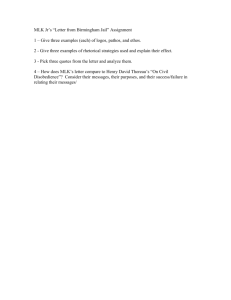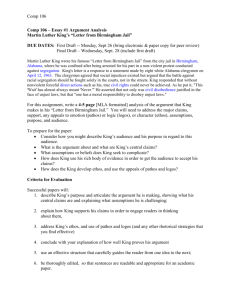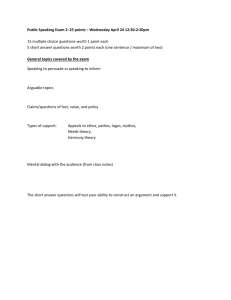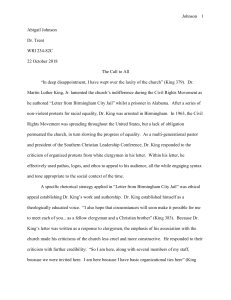Dr. King Letter Syntax Analysis Short write
advertisement
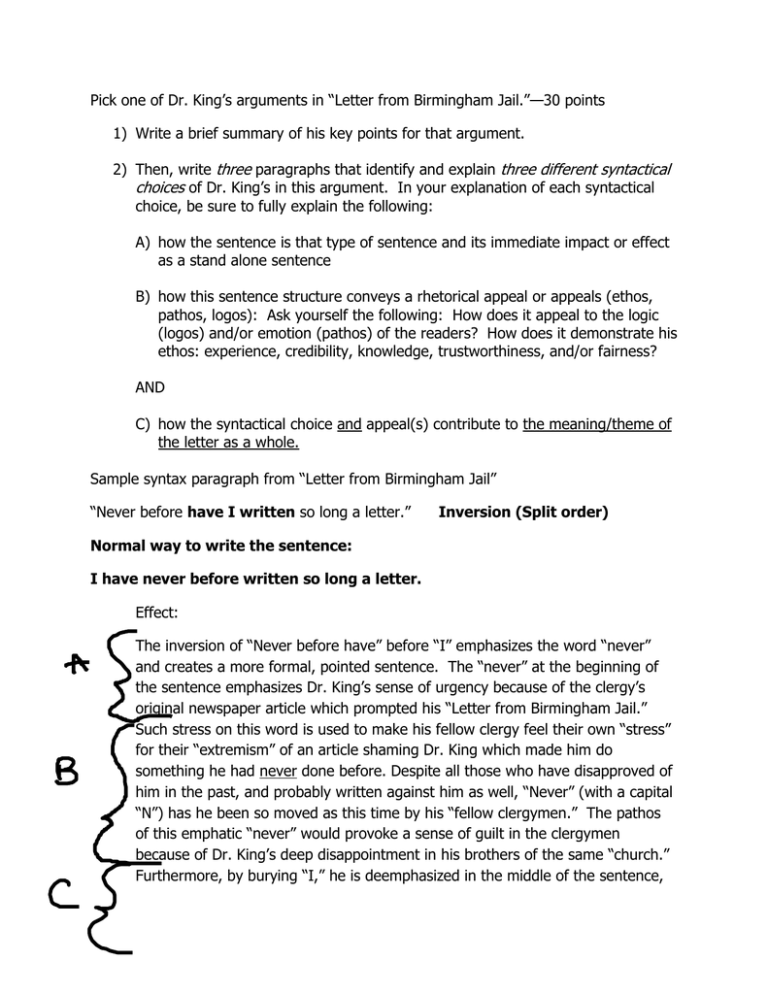
Pick one of Dr. King’s arguments in “Letter from Birmingham Jail.”—30 points 1) Write a brief summary of his key points for that argument. 2) Then, write three paragraphs that identify and explain three different syntactical choices of Dr. King’s in this argument. In your explanation of each syntactical choice, be sure to fully explain the following: A) how the sentence is that type of sentence and its immediate impact or effect as a stand alone sentence B) how this sentence structure conveys a rhetorical appeal or appeals (ethos, pathos, logos): Ask yourself the following: How does it appeal to the logic (logos) and/or emotion (pathos) of the readers? How does it demonstrate his ethos: experience, credibility, knowledge, trustworthiness, and/or fairness? AND C) how the syntactical choice and appeal(s) contribute to the meaning/theme of the letter as a whole. Sample syntax paragraph from “Letter from Birmingham Jail” “Never before have I written so long a letter.” Inversion (Split order) Normal way to write the sentence: I have never before written so long a letter. Effect: The inversion of “Never before have” before “I” emphasizes the word “never” and creates a more formal, pointed sentence. The “never” at the beginning of the sentence emphasizes Dr. King’s sense of urgency because of the clergy’s original newspaper article which prompted his “Letter from Birmingham Jail.” Such stress on this word is used to make his fellow clergy feel their own “stress” for their “extremism” of an article shaming Dr. King which made him do something he had never done before. Despite all those who have disapproved of him in the past, and probably written against him as well, “Never” (with a capital “N”) has he been so moved as this time by his “fellow clergymen.” The pathos of this emphatic “never” would provoke a sense of guilt in the clergymen because of Dr. King’s deep disappointment in his brothers of the same “church.” Furthermore, by burying “I,” he is deemphasized in the middle of the sentence, and Dr. King formally keeps the focus of his letter on their published provocation and not on his own letter of response. This illuminates the real reason for the letter: the white clergies’ shameful “white moderate” reaction.
